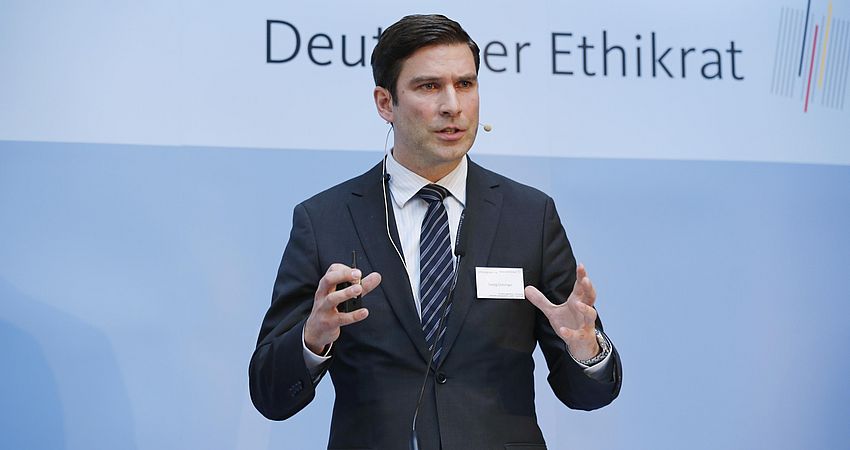Annual Meeting
Reproductive Medicine in Germany. Individual Life Plans – Family – Society

Georg Griesinger · Universitäres Kinderwunschzentrum Lübeck, Deutscher Ethikrat, Fotograf: Reiner Zensen
Topic
Reproductive medicine provides more and more options for action: germ cells and embryos can be donated, frozen for many years and – in some special cases – even be genetically modified. Maternity becomes possible at an ever higher age and possible parental roles are expanded through germ cell donation and surrogacy.
While the legal basis has hardly changed in Germany over the last 20 years, there has been a noticeable change in society’s expectations as to whether and how reproductive technologies may be used. At the same time, an emphasis on reproductive autonomy challenges traditional values and ideas about the structure and meaning of family. The understanding of family, in turn, has implications for society.
With its annual meeting, the Ethics Council focuses in particular on the following questions:
- In what way do challenges of modern reproductive medicine influence our understanding of self-determination, family and society?
- What are the pros and cons of so-called “three-parent babies”, which are created with the help of an additional egg cell from another woman to avoid certain hereditary diseases?
- What individual and social problems can arise for the women, children and families involved in egg donation or surrogacy?
- How much individual freedom does the possibility of becoming pregnant much later in life with the help of frozen eggs offer?
- What political action is needed to ensure that reproductive medicine in Germany is used responsibly in the future?
